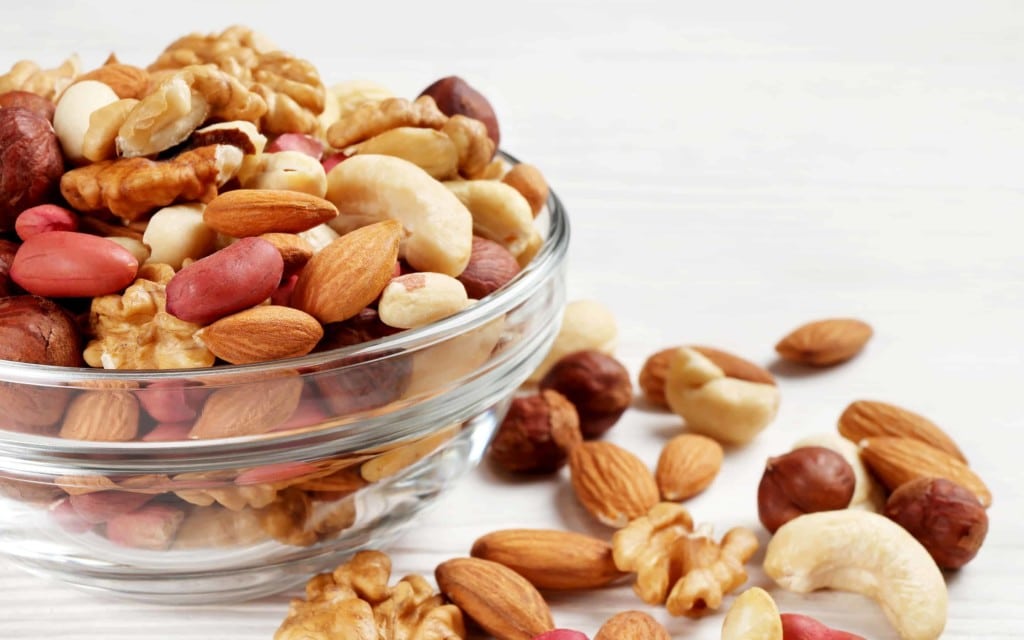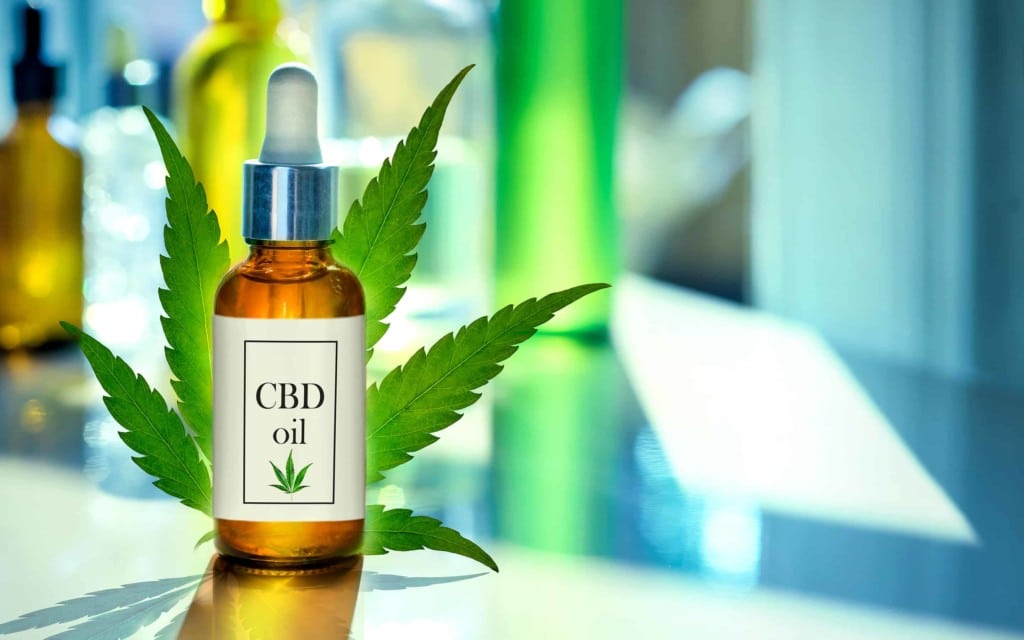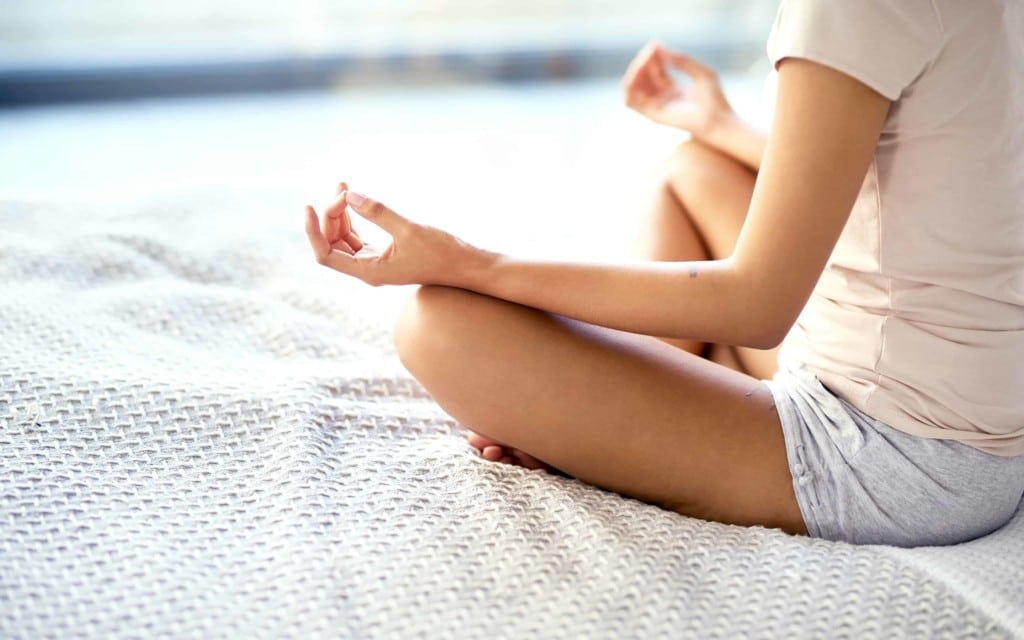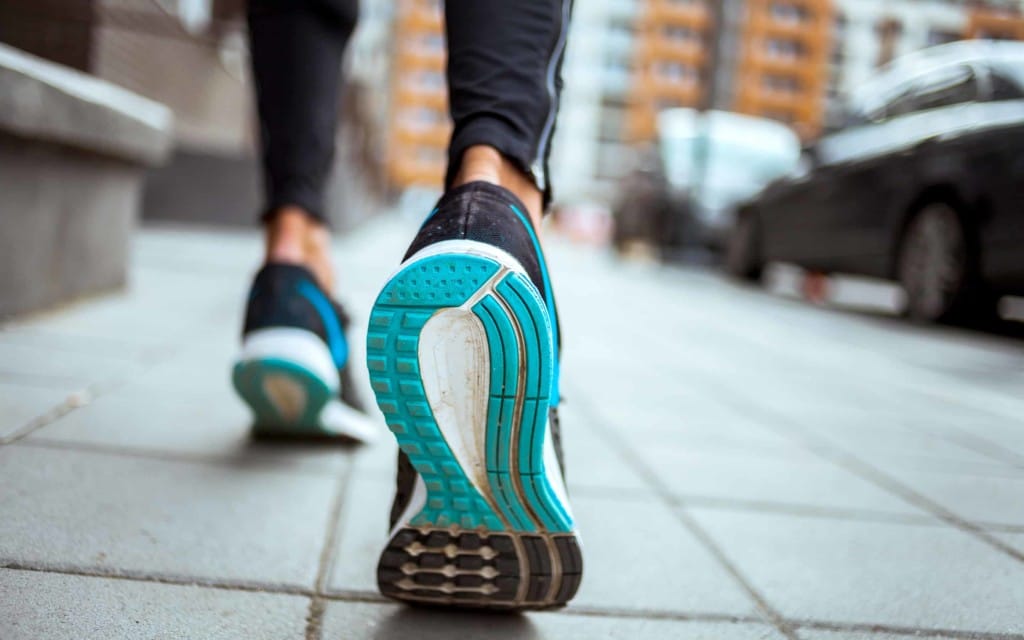In today’s 24/7 society, we often see sleep as an unnecessary luxury, rather than a necessity.
We laugh off our exhaustion. We compete with coworkers and friends to see who can stay up the longest, or get by on very little rest.
However, sleep deprivation is no laughing matter.
Skipping out on sleep so you can get to work earlier or accomplish more at home after you leave the office, might seem like the ideal way to boost your productivity.
Meanwhile it’s actually having a hugely negative impact on your health.
The bad news?
Once you’ve trained your mind to stay active at all hours of the day, it becomes incredibly difficult to wind down, relax, and snooze soundly when you want to.
It’s easy to see why up to 40% of American adults say that they have at least occasional issues with insomnia.
So, what do you do when you can’t get the shut-eye that you know you need? Well, you could try medications — but they have the potential to make your sleep worse rather than better.
The good news?
There are plenty of natural sleep aid alternatives available.

Natural sleep aids #1: The perfect midnight snack
Let’s start simple.
Just as you need to provide your body with the right food to keep it fueled during the day, you also need to ensure you’re eating the right meals at night for a great slumber.
Consuming heavy foods like pasta and bread on an evening might be a delicious way to treat your senses, but it also runs the risk of you having heartburn keeping you up all night.
That doesn’t mean that you have to skip a satisfying meal — you just need to think carefully about when you’re eating it.
Focus on adding more snooze-inducing foods into your evening schedule, such as:
Nuts
Nuts are a (mostly) healthy snack, if you eat them in moderation. Try to avoid too much salt on your nuts. Walnuts and almonds are particularly good at delivering an extra dose of melatonin and magnesium — two nutrients essential for sleep.
Kiwi
Research indicates the kiwi fruit is one of the best things to eat for sleep, thanks to high levels of serotonin within the fruit. Serotonin is the stuff that makes you feel happy and calm. Kiwi is also packed full of vitamin C, which is handy for aiding digestion when you snooze.
Turkey
You’ve probably heard a story or two about turkey making you tired. A nap after a big turkey dinner is a common practice for many of us — particularly around Christmas. That’s because turkey comes packed full of tryptophan — that’s a kind of amino acid that’s great for your snoozing strategy.
Cottage cheese
Yep, you can eat cheese before bed — believe it or not. Research indicates protein-rich cottage cheese is excellent for giving your metabolism a much-needed boost during the night.
Nutritionist Professor Michael Ormsbee and his team found consuming two tablespoons of the cheese just half an hour prior to bedtime was actually good for wellbeing.
This could help you to process any of the food that you eat faster and support your waistline too.
While you’re searching for the ideal natural sleep remedies in your diet, it’s also worth paying attention to the foods you shouldn’t be eating.
For instance, alcohol might initially make you feel drowsy when you’re going to bed, but it will ruin the quality of your sleep, meaning you wake up feeling more exhausted the next day.
Avoiding things that are high in sugar and caffeine can be helpful too!
Natural sleep aids #2: Sip your way to slumber town
The foods that you choose to eat and avoid can make a massive difference to how well you sleep. However, it’s important to think about what you’re drinking too.
Obviously, you’re going to be avoiding alcohol and coffee before you go to bed.
However, it’s worth noting that there are a handful of sleep-friendly drinks available to explore too. For instance:
Water
A tall glass of water should be kept by your bed each night. It’s crucial to ensure that you’re keeping your fluid levels topped up not just through the day, but during the night too. If you tend to sweat a lot when you go to bed, it’s even more important to avoid dehydration.
Calming teas
You probably already know chamomile can help you relax for a good night’s rest. There are a bunch of other tea options that often go overlooked, ranging all the way from valerian root teas, to teas made from lavender.
Research found that chamomile’s apigenin flavonoid helps to calm the brain. Additionally, valerian tea can reduce the time it takes for you to fall asleep each night.
Some people wake up in the middle of the night and find it hard to go back to sleep. Keeping a thermo flask with a bit of calming tea by the bed, could be beneficial.
Tart cherry juice
There are a lot of insomniacs that swear by the benefits of using tart cherry juice before they go to bed each night. This substance contains melatonin — the stuff that helps you to manage your sleep cycle. Drinking just a bit of this tart treat can help you to wind down before bed.
Coconut water
Normal water might not appeal to you. You still need to stay hydrated through the night, then coconut water could be the perfect alternative. Not only is coconut water great for hydration, but it’s full of electrolytes too!
Warm milk
There’s a reason why your mother used to suggest a glass of warm milk before bed when you were struggling to sleep. This soothing substance can help you to relax and unwind when you need to drift off into a good night of slumber.
Remember, making sure you’re using the right beverages to get to sleep each night means thinking about when you stop drinking caffeine.
Most of us assume that if we want to go to bed at 11 pm we can stop drinking caffeine at 7pm and be fine.
You should actually cut down on your caffeine intake as close to lunch time as possible. This to get as much of this substance out of your system as possible.
Switch to natural sleep remedies in the early afternoon, like a nice cup of low-caffeine green tea.
When you’re getting ready to go to bed, about 2 hours before you hit the sheets, you can try one of the options above.

Natural sleep aids #3: Experiment with essential oils
Have you ever caught a whiff of something when visiting your mum’s house, or walking around a convenience store, and suddenly felt totally relaxed?
Our brains have a crucial connection with scent, meaning that our olfactory senses can influence how we feel.
Specialists in sleep and insomnia have used this connection to create aromatherapy strategies for targeting a wide range of sleep disorders.
Something as simple as dripping some oil into a diffuser could be the perfect all-natural sleep aid. Essential oils can also be used topically on your pillow or skin.
Before we continue check out these great products on Amazon.
Here are just some of the best natural sleep aid oils to add to your nightly routine:
Lavender
Lavender is frequently ranked as one of the leading essential oils for sleep. The solution has been known to assist with anxiety and sleep quality throughout the decades.
You can even feel more alert during the day if you take lavender to bed with you at night.
Valerian root
You don’t need to drink Valerian to get the benefit from it. This natural substance is used in a variety of sleep aids in the form of an essential oil.
Although the results from studies into the effects of valerian on sleep have been inconclusive at times, most people report that they get a better nights sleep after using this substance.
Eucalyptus
Another natural sleep aid options for people who suffer from certain forms of mild insomnia. Eucalyptus can assist with everything from relaxation, pain reduction to sleep apnea.
The oil has anti-inflammatory properties and helps to open up your airways. This could be ideal, if you suffer from obstructive forms of sleep apnea.
CBD oil
Although not considered an essential oil, it seems like CBD oil is everywhere these days. Addressing everything from anxiety to chronic pain.
When used as a natural sleep aid, CBD oil can help to relax your mind. Whether you eat it, diffuse it, or vape it, a dose of CBD could make it more likely you will enjoy a natural night of sleep.
Since this substance also helps with chronic pain, it could even stop you from waking up during the night because of pre-existing ailments.
Remember, there are a variety of ways you can use essential oils as part of your all-natural sleep aid routine.
As mentioned some people prefer to simply drip their oils into a diffuser placed next to their bed.
Others use humidifiers so that they can essentially breathe in the oils. You can even mix your essential oils with carriers so you can apply them to your skin.
One of our favourite options is to add a few drops of your natural oils to a bubble bath. A study followed women who take hot baths before they go to bed. It proved they fall asleep faster and have a higher quality of sleep than those that didn’t take a bath.
If you don’t have time for a full bath, you can always just soak your feet for a few minutes to unlock similar snooze-inducing powers.
Natural sleep aids #4: Discover the value of vitamins, hormons and minerals
Vitamins are another solution for anyone in search of natural sleep remedies to deal with insomnia and sleep deprivation.
Taking a supplement can be an excellent way to top up the stores of essential vitamins and minerals in your body.
Just don’t expect to pop one pill and see a huge response immediately. It may take time for you to balance things out, if you’ve been deprived of a specific vitamin for a while.
Some of the most common vitamins to help with natural sleep include:
Vitamin D
Most people automatically think of sunlight when they’re discussing vitamin D.
However, popping one of these pills can actually be ideal for your sleep quality too. Having a Vitamin D deficiency is well-known for keeping you up at night.
Magnesium
Part of the reason you should consider using nuts as your bedtime snack is because they contain the mineral magnesium.
You can also you magnesium capsules, magnesium oil or lotion as part of your relaxing nighttime ritual.
Magnesium has a calming effect on your body in general. Magnesium helps to support melatonin-production in your body and therefore help you to get to sleep and stay asleep for longer.
Melatonin
Melatonin is probably the most frequently cited natural sleep aid there is. Originally developed to overcome jet lag, this sleep hormone is essential for regulating your sleep/wake cycle.
Some people suffering from insomnia find taking a melatonin supplement is the best way to keep fall asleep and stay asleep.
There are more useful things about using melatonin as one of your natural sleep aids. It’s good not just for helping you to fall asleep, it can also assist with getting your routine back on track after you travel or change sheets.
The production of melatonin in the body is triggered by an absence of light. You might be working in a routine that doesn’t give you a lot of exposure to the sun. In this case you may need melatonin supplements to help you get into a rhythm.
Researchers have found that melatonin improves sleep quality and reduces nighttime disturbances in people from all walks of life.
Just remember to speak to your doctor before you begin taking any kind of supplement. The medications you already use could interact negatively with certain herbal remedies.

Natural sleep aids #5: Ramp up your relaxation efforts
Still with us?
If natural sleep remedies like vitamins and essential oils don’t work for you, then it may be that you need to do something to change the way you feel when you’re going to sleep.
Anxiety can be one of the biggest causes of sleep deprivation.
Unfortunately, these days, most of us are dealing with some form of stress that makes it difficult to switch off.
The good news is that there are plenty of ways you can begin to boost your relaxation efforts, for instance:
Try meditation
Meditation is a lot easier than you’d think. You don’t need to be an expert to get started. There are plenty of apps and videos out there that can help you with guided relaxation and breathing techniques.
Set aside time to get ready for sleep
Rather than browsing through social media on your smartphone until you’re ready to snooze, set some time aside for a schedule conducive to good sleep.
Remember electronics and blue light are proven to have a negative impact on sleep quality. Using your time before bed to practice some yoga is a great way to get your mind and body into sleep mode. Reading a book, or doing something else that “unplugs” you from technology will be beneficial.
Keep a journal
If anxiety and stress are keeping you up at night, it might be helpful to get some of your worries down on paper.
Journaling your thoughts can help you to organise them before you go to bed. You might even come up with some solutions to your issues that you can try.
When you know you’re already working towards a solution for your issues, you’re much less likely to panic about your issues whilst trying to fall asleep.
Look into CBT
If no matter what you do, you’re still dealing with things like sleep anxiety each night, you may need to consider cognitive behavioural therapy or CBT.
This form of therapy helps you to get to the root cause of your anxiety, so you can actively change and improve your thought processes.
It sounds overly simple, but evidence suggests that learning how to relax properly will really improve your sleep. You need to be committed to whatever strategy you choose, whether it’s visualization or meditation.
You’ll eventually notice a difference.
One study from the National Centre for integrative and complementary health found that relaxation techniques are a crucial part of insomnia treatment.

Natural sleep aids #6: Alternative treatments
Finally, there are a handful of other ways you can tap into all-natural sleep aid options to solve your insomnia issues. For instance, we’ve discussed before how regular physical activity is crucial for improving your sleep quality.
Mounting scientific evidence proves people who exercise regularly are more likely to enjoy a good night of slumber than people who spend more time on the couch.
One study found that people who got 60 minutes of exercise up to 5 days per week have better REM sleep than people who don’t exercise. You don’t even have to sweat it out for that long to see results.
20 minutes of exercise each morning could help you to regulate your sleep patterns too.
Notably, exercising in the morning when you just wake up is generally the best way to enhance your sleeping routine. That’s because natural sunlight helps to set your circadian rhythm.
Natural light each morning, this tells your brain that it’s time to wake up.
When your hypothalamus senses a change in the amount of light that you’re exposed to, it tells your body and brain that it’s time to increase or reduce the production of the hormone melatonin in your system.
In the dark, you produce more melatonin. When you’re in the light, then you’ll produce more cortisol to keep you awake.
Notably, this light exposure strategy only works with real genuine sunlight. You may also be able to get similar results when using sunlight lamps.
However, the artificial lights in your home aren’t going to give you nearly enough of the right light to change your natural sleep patterns.
Another thing to keep in mind when you’re looking for the best natural sleep aid is that most doctors will recommend changing your sleep hygiene strategy if you’re struggling with insomnia.
Having a good nightly routine is crucial to making sure that you sleep well each day. This is true whether you’re an adult or a child.
Try setting aside a couple of hours each night for your own routine. You might have a nice bath before bed or drink a hot cup of tea while reading a book before you snooze. The details of your routine are up to you.
Enjoy your natural sleep aids
Although we all have the occasional sleepless night. There’s a real problem if you find that you’re constantly unable to get the quality of rest that you need.
Failing to sleep well for an extended period of time could lead to the symptoms of sleep deprivation, which include everything from weight gain, to mood problems.
The good news is that there are natural sleep remedies out there that can help you to get back on track. You won’t even be exposing yourself to any dangerous chemicals. Check out our other advice on natural sleep solutions her at Siestio.
Try one of the options above if you’re struggling with your slumber and consider making an appointment with your doctor.
A medical professional will be able to provide you with much more personalized treatment strategies based on your medical history.
Siestio. Sleep Matters.
Affiliate disclaimer
Just so you know… This article contains affiliate links. The commission we earn helps to cover our costs, and comes at no additional cost to you. For more information on our affiliate program, please refer to our disclosure policy.
Medical disclaimer
You must not rely on the information provided on our website as an alternative to medical advice from your doctor or other healthcare professionals. For more information read our full disclaimer here.








